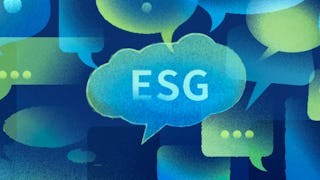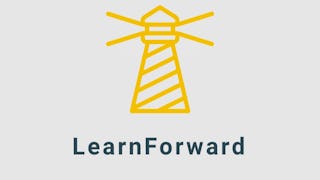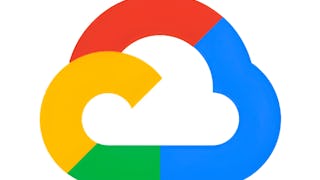- Browse
- Presentation Skills
Results for "presentation skills"
 Status: Free TrialFree TrialU
Status: Free TrialFree TrialUUniversità di Napoli Federico II
Skills you'll gain: Interactive Data Visualization, Tableau Software, Dashboard, Data Storytelling, Data Visualization Software, Peer Review, Data Presentation, Data Integration, Data Visualization, Geographic Information Systems, Spatial Analysis, Business Intelligence, Data Manipulation, Data Preprocessing, Data Transformation, Data Sharing, Data Analysis, Business Analytics, Data Cleansing, Data Access
4.6·Rating, 4.6 out of 5 stars11 reviewsBeginner · Specialization · 3 - 6 Months

Skills you'll gain: Expense Management, Google Sheets, Data Visualization, Spreadsheet Software, Budgeting, Budget Management, Financial Forecasting, Excel Formulas
4.9·Rating, 4.9 out of 5 stars43 reviewsBeginner · Guided Project · Less Than 2 Hours
 Status: Free TrialFree TrialD
Status: Free TrialFree TrialDDuke University
Skills you'll gain: Environmental Social And Corporate Governance (ESG), Emotional Intelligence, Discussion Facilitation, Diversity and Inclusion, Empathy & Emotional Intelligence, Social Justice, Communication, Sustainable Development, Cultural Responsiveness, Active Listening, Climate Change Adaptation
4.7·Rating, 4.7 out of 5 stars36 reviewsBeginner · Course · 1 - 4 Weeks

Skills you'll gain: Educational Materials, Curriculum Planning, Developing Training Materials, Interactive Learning, Organizational Skills, Student Engagement, Education Software and Technology, Learning Strategies, Test Tools, Drive Engagement
4.7·Rating, 4.7 out of 5 stars32 reviewsBeginner · Guided Project · Less Than 2 Hours
 Status: NewNewStatus: Free TrialFree Trial
Status: NewNewStatus: Free TrialFree TrialSkills you'll gain: Object Oriented Programming (OOP), File I/O, Data Persistence, Object Oriented Design, Java, Maintainability, Software Design, Program Development, Application Development, Data Management, Data Validation
4.6·Rating, 4.6 out of 5 stars13 reviewsIntermediate · Course · 1 - 4 Weeks
 Status: Free TrialFree TrialG
Status: Free TrialFree TrialGGoogle Cloud
Skills you'll gain: Gemini, Google Workspace, Generative AI, Prompt Engineering, Image Quality
4.3·Rating, 4.3 out of 5 stars28 reviewsBeginner · Course · 1 - 4 Weeks
 Status: Free TrialFree Trial
Status: Free TrialFree TrialSkills you'll gain: Exploit development, OSI Models, Network Security, Exploitation techniques, TCP/IP, Cybersecurity, Vulnerability Scanning, Metasploit, Malware Protection, Network Protocols, Distributed Denial-Of-Service (DDoS) Attacks, Cyber Attacks, Wireless Networks, Application Security, Cyber Security Assessment, Network Monitoring, Linux, Object Oriented Programming (OOP), General Networking, Security Awareness
4.7·Rating, 4.7 out of 5 stars20 reviewsIntermediate · Specialization · 3 - 6 Months
 Status: Free TrialFree Trial
Status: Free TrialFree TrialSkills you'll gain: Model Deployment, Restful API, Application Deployment, Generative AI, AI Workflows, LLM Application, Java, AI Enablement, Development Environment, Image Analysis, Software Development
4.6·Rating, 4.6 out of 5 stars15 reviewsIntermediate · Course · 1 - 4 Weeks
 Status: Free TrialFree TrialJ
Status: Free TrialFree TrialJJohns Hopkins University
Skills you'll gain: Network Analysis, R Programming, Statistical Analysis, Regression Analysis, Statistical Modeling, Bayesian Network, Statistical Hypothesis Testing, Statistical Programming, Data Analysis, R (Software), Probability, Probability Distribution, Applied Machine Learning, Probability & Statistics, Statistical Methods, Social Network Analysis, Applied Mathematics, Simulations, Data Science, Markov Model
Intermediate · Specialization · 3 - 6 Months
 Status: Free TrialFree TrialU
Status: Free TrialFree TrialUUniversity of Illinois Urbana-Champaign
Skills you'll gain: Virtual Teams, Cultural Sensitivity, Intercultural Competence, Cultural Diversity, Team Management, Teamwork, Negotiation, Communication Strategies, Leadership and Management, Diversity Awareness, Conflict Management, Business Leadership, Leadership, Communication, Non-Verbal Communication
Build toward a degree
Beginner · Course · 1 - 4 Weeks
 Status: PreviewPreviewB
Status: PreviewPreviewBBirla Institute of Technology & Science, Pilani
Skills you'll gain: Writing, Grammar, Editing, Proofreading, English Language, Intellectual Property, Vocabulary
Intermediate · Course · 1 - 3 Months
 Status: Free TrialFree TrialS
Status: Free TrialFree TrialSScrimba
Skills you'll gain: Hugging Face, Model Deployment, Open Source Technology, Responsible AI, Web Applications, Large Language Modeling, Artificial Intelligence
4.8·Rating, 4.8 out of 5 stars33 reviewsIntermediate · Course · 1 - 4 Weeks
Searches related to presentation skills
In summary, here are 10 of our most popular presentation skills courses
- Data Visualization: Analisi dei dati con Tableau: Università di Napoli Federico II
- تطوير خطة توفير على دخل ثابت باستخدام جداول بيانات جوجل: Coursera
- ESG Communication for Inclusive Dialogue: Duke University
- Improving Content Mastery with Quizlet: Coursera
- Java App Development Project: Fundamentals, OOP & File I/O: SkillUp
- Gemini in Google Meet: Google Cloud
- The Complete Ethical Hacking Course: Packt
- Generative AI for Java and Spring Development: SkillUp
- Statistical Methods for Computer Science: Johns Hopkins University
- Global Impact: Cross-Cultural Management: University of Illinois Urbana-Champaign










